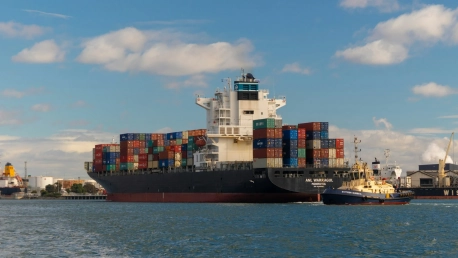In a significant move for the maritime sector, DFDS, a leading ferry operator, is taking strides toward sustainability by aiming to electrify its vessels operating across the English Channel. This eco-conscious shift is a response to the urgent need to cut down on carbon emissions within the industry. By focusing on one of the most congested maritime routes globally, DFDS sets a potential precedent that might redefine marine travel standards. If successful, the electrification initiative by DFDS could serve as a model for other maritime operators, accelerating the transition to greener shipping practices. This comes at a time when environmental concerns are increasingly shaping transportation policies and could mark a transformative moment in the effort to combat climate change. With the English Channel as the testbed, the ripple effects of this eco-friendly approach could influence the wider adoption of clean energy solutions in the maritime world.
Pioneering Green Maritime Solutions
As maritime traffic contributes significantly to global emissions, the introduction of battery electric vessels by DFDS emerges as a game-changer for cleaner sea transport. The Eastern Channel will see these cutting-edge ferries servicing the short distances between the UK and Europe. This initiative is aligned with the EU’s goals for decarbonizing transport and supports the Paris Agreement’s global climate objectives. The DFDS commitment is substantial, with a plan to invest nearly a billion euros in this green transition. The scope of this investment underscores the gravity of their pledge to pioneer eco-friendly solutions in the maritime sector.The investment is not solely in electric vessels but encompasses a comprehensive strategy for turning to greener energy sources such as methanol and ammonia. Such a diversified approach hints not only at reducing emissions but also at inducing a significant modal shift in the industry’s approach towards its energy consumption mix. Through these efforts, DFDS is aiming to not just partake in the green revolution but to lead it as they knit sustainability into the very fabric of their operational philosophy.
Strategizing Collaboration and Funding
To electrify its ferries on a large scale, DFDS has strategically partnered with key ports such as Dover, Boulogne-Calais, and Dunkerque. Through signed MOUs, these ports commit to establishing the essential charging infrastructure necessary for the transition. Collaborating with both local and EU entities, DFDS is well-positioned to secure financial backing from substantial sources such as the EU Innovation Fund and the newly instituted EU Hydrogen Bank. This melding of infrastructure development and strategic financing places DFDS at the forefront, potentially receiving significant aid for its project costs, and signals a broader shift towards sustainability in maritime trade. These developments represent not just DFDS’s advancements but mark a potential industry-wide pivot towards a more environmentally conscious operation.
Positioned for Industry Leadership
DFDS, deeply aware of the English Channel’s importance for UK-EU trade, is spearheading its maritime transformation. The company’s strategic investments are not just paving the way for immediate carbon neutrality, but also setting the stage for enduring sustainability in the region. By mobilizing its extensive workforce across ports and on ships, DFDS is championing a significant ecological shift that merges environmental care with social responsibility.The planned introduction of methanol and ammonia-powered vessels exemplifies DFDS’s proactive approach to environmental innovation in shipping. These efforts don’t just tweak the face of maritime traffic; they challenge the entire industry to join the pursuit of a sustainable future. DFDS’s strategic moves in the Channel show their determination to lead by example in the green maritime revolution.









